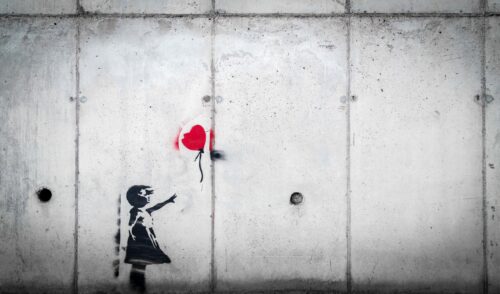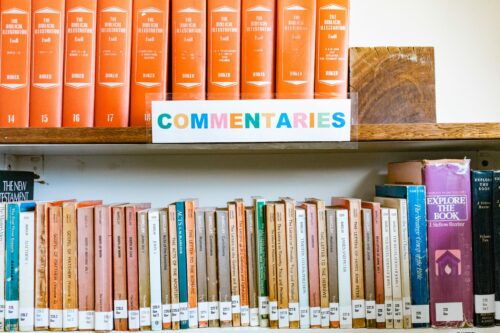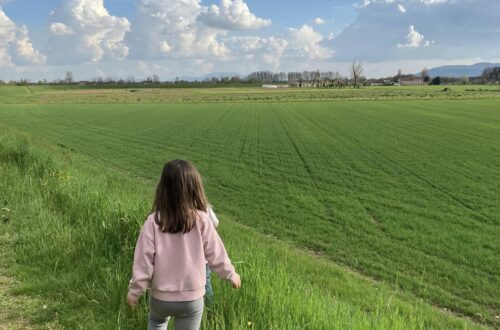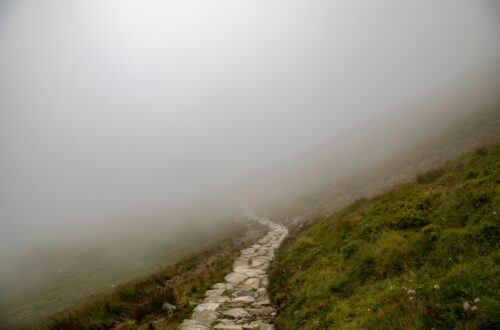So many Christian women write in saying they want freedom from pornography. Here’s my question for them (for you): what does that look like?
On a road trip recently, I stopped by my mother’s house. Every time, without fail, she hands me something of mine that she found while going through boxes in her basement. This time, she handed me a bag and as I went through it, I found a tiny notepad. I caught a glimpse of the first page:
“Dear God, Tonight I’m fighting, struggling…”
I felt my cheeks flush with embarrassment. What had I written? Had she read it all? What does she know?
Yes, I share my story openly here, but for years, my deepest, darkest wrestlings and confessions were scrawled in journals and notebooks, and apparently notepads. Those feel sacred and knowing that my mom just casually came across one from the height of my struggle (it is dated October 13, 2002) made me almost angry.
I tossed the notepad back in the bag and determined I would read it later.
A day or so later, I got a text from a friend:
“Jessica, help! A friend of mine just shared that she struggles with pornography and I don’t know how to help her.”
I sat on an answer for a while, and then I responded.
“Ask her what freedom from pornography looks like.”
That was only part of my answer, but I feel like it’s an important part. Too often we share our struggles with someone else, say we want freedom, and then just leave them- the other person- to figure out what that looks like, how it’s supposed to happen, and expect them to somehow force it to happen. This is a flawed approach to accountability.
Imagine wanting to build your dream home. You ideally would research different designs, get a rough idea of what you want and then approach an architect or builder to start a discussion. You would not just walk into the meeting, throw money on the table, say, “I want a house” and walk out. Yes, you want a house, but you also have an idea of what that looks like, and that idea gives you direction. It gives you a vision.
Do you know what freedom from pornography looks like?
When you think about what it means to be free from pornography, what is the image that comes to your mind? What does your life look like?
I think so many of us have this vision that freedom from pornography looks like “not watching pornography anymore.” Freedom is my life as is, but with no pornography.
If that is your vision of pornography then you will likely find yourself obsessing over your struggle. You’ll ask questions like “how far is too far” or “does this qualify as pornography?” You’ll keep track of the number of days since you last fell. The methods of pursuing freedom will be to install filters or accountability software. All of it is completely focused on eradicating pornography.
It’s a good endeavor, but it isn’t freedom.
For some of you, freedom from pornography looks like getting what you want: marriage, kids, a career, friends, whatever. You find yourself saying, “If I just had (insert dream), then I would be free.” This pursuit of freedom obsesses over whatever that dream is. You believe that dream is what is going to save you. You may even try bargaining with God. “Let me get married and then I’ll drop the porn.”
This isn’t freedom. It’s wishful thinking. It’s idolatry.
And still for others, freedom is less about freedom from pornography and more about freedom from feeling bad about pornography. You want to keep your porn habit and just not feel as guilty about it. Pursuit of this type of “freedom” leads to a lot of excuses and justifications. You may even start watching solo porn or homosexual pornography because, in your mind, it’s not “as bad” as the “other stuff.” To borrow the old phrase, you want to have your cake and eat it too.
This most certainly isn’t freedom.
But if we’re not careful, this last scenario is where we are all prone to end up. You see, this is culture’s version of freedom: whatever you want, whenever you want it, without guilt.
You can start off wanting freedom from pornography (a life without pornography) and end up with a life consumed by it.
This is why it is so important for you to know what freedom from pornography looks like.
I think many of us are willing to settle for the “please just take the porn away” version of freedom. Freedom Lite.
I know I was willing to settle for this one. I just wanted the pornography gone. I wanted those chains gone. The idea of healing from trauma. The thought of becoming more emotionally stable. The hope of marriage. All of those things didn’t matter. I just wanted to be “free.”
It was like I was being beat up on a street corner and all I really wanted was the bullies to be gone. I couldn’t trouble God for anything else. Just get the bullies to go away, don’t worry about me. I’ll take care of myself. These wounds will heal.
Oh but, friend, that is not grace.
My vision of freedom was too narrow. Too small.
And do you know where that pursuit of freedom led me? It led me to giving up at the age of 17, sending nudes from my dorm room at Christian college, and dropping out of said Christian college so I could become a porn star.
That is not freedom.
As I read that scrawled prayer from nearly 20 years ago, my heart broke for that younger me.
“What’s wrong with me? Why is this such a struggle? … I’ve got a sin that only You know, I know it’s wrong, I want to stop. Do I have the wrong motivation? Do I have any? The only thing that scares me is going to Heaven, and standing amongst family, friends, people in my church, etc… and having You announce that sin, that scares me… I feel too much like a fan, unworthy to be in Your presence…”
Do you see yourself there? I get emails every week from women sharing those same words. Those same frustrations about trying to stop, wondering why it’s so hard, and feeling like a hypocrite.
Why does a vision for freedom matter?
Your vision of freedom matters because it will inform your motivation. Your vision of freedom matters because it will help unearth other areas in your life that need healing and growth.
Pornography isn’t just something we do. It’s something that affects us.
When I responded to my friend’s text, one thing I told her is that pornography is a “predatory symptom.” Not only is it evidence of a deeper issue, it causes its own deeper issues. It’s like a poisonous vine. The roots need dug up and the areas damaged need restored.
Ask yourself who you are without pornography. Who are you emotionally? Spiritually? Relationally? If the only thing that changes is that you no longer watch pornography, is that truly freedom?
Are you still ok with being cranky, isolated, insecure, untrusting, and distant? Does that sound like freedom?
Does your vision for freedom from pornography include your transformation and healing?
If you want freedom from pornography it is important to have a vision for what that looks like. Have a holistic vision- one that includes healing from trauma as well as growth in areas of deficiency. Don’t settle for “Freedom Lite” when God wants to offer you so much more.






